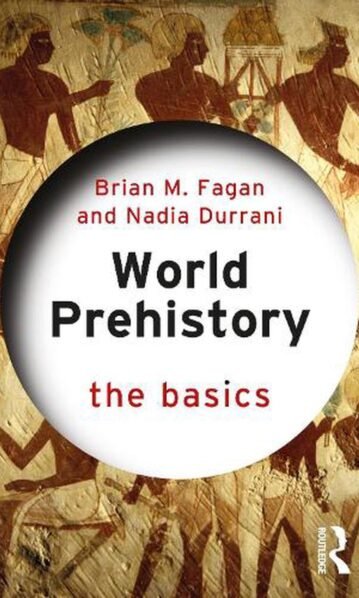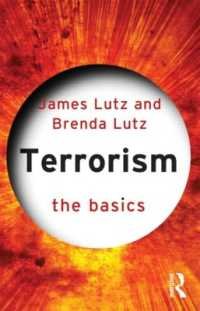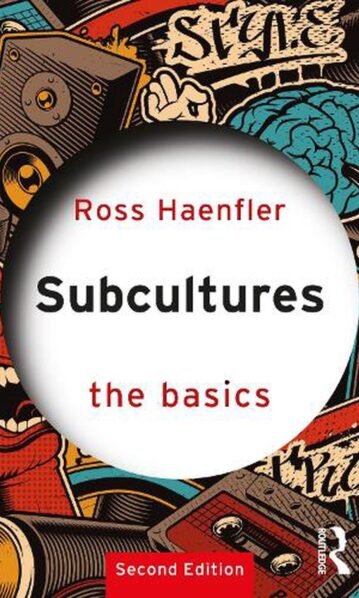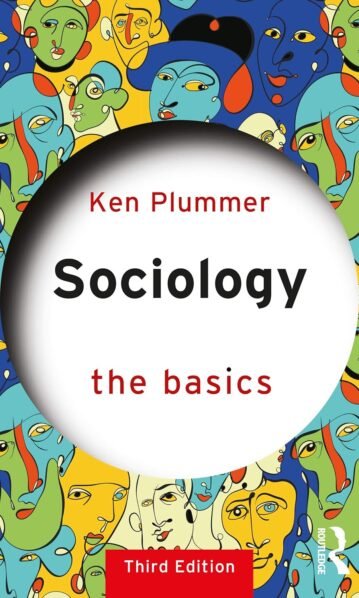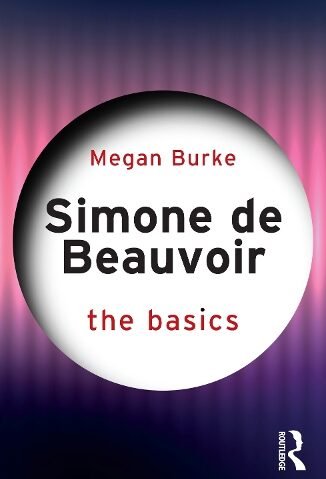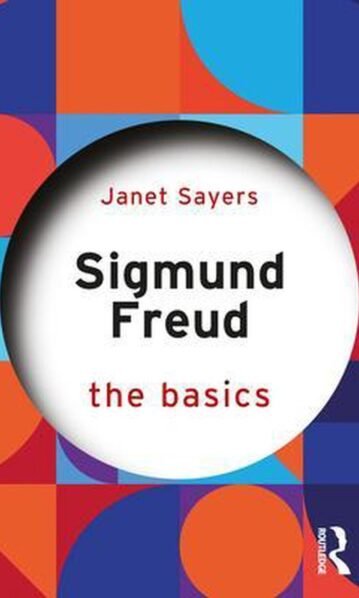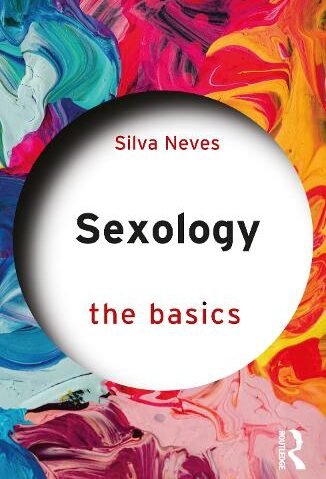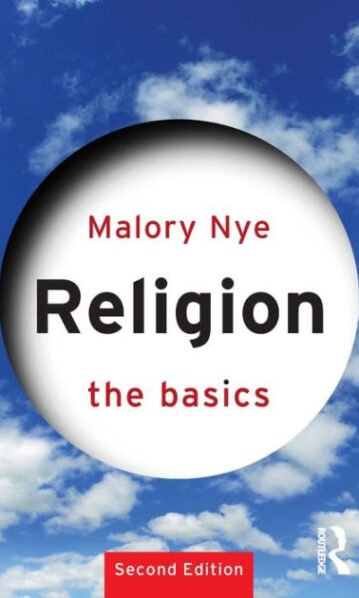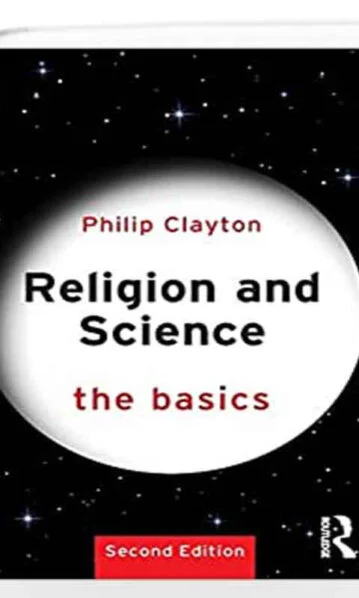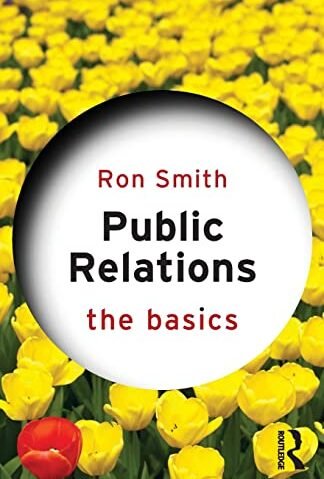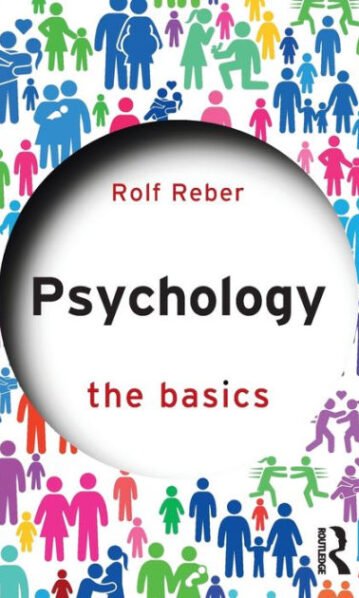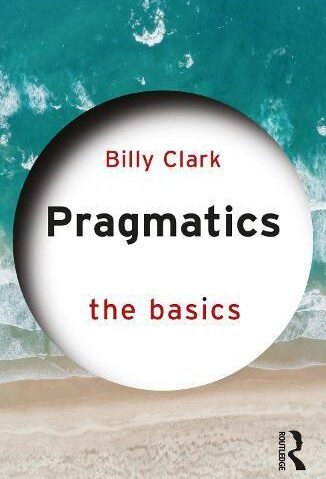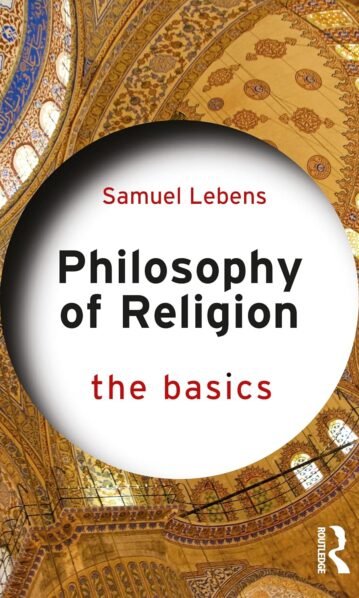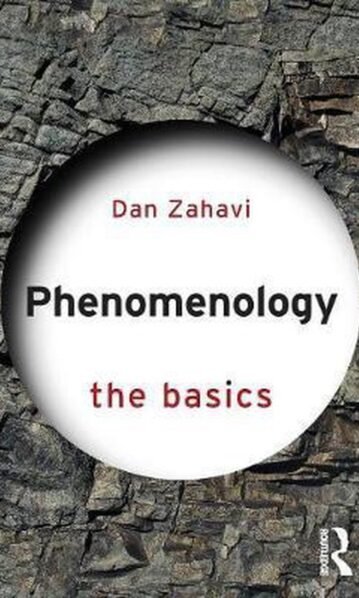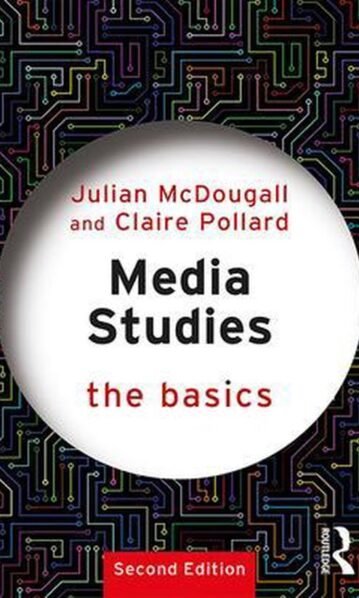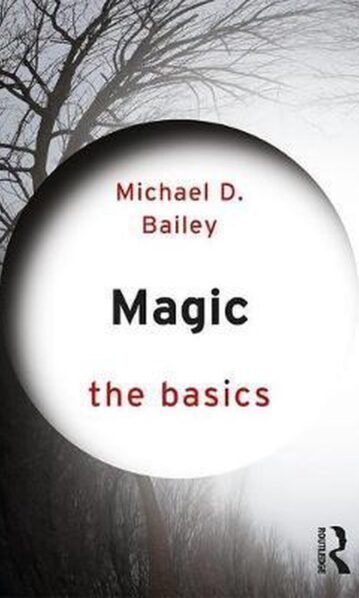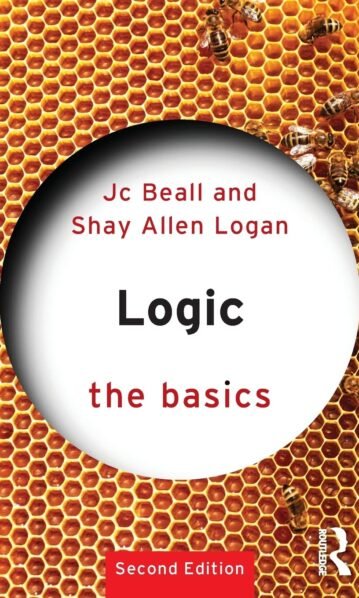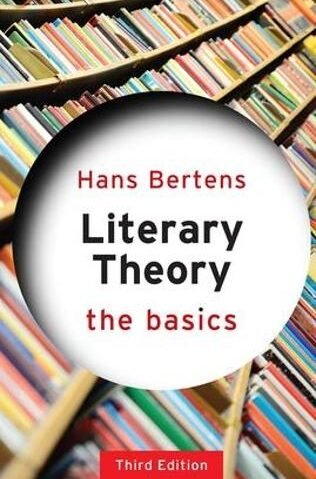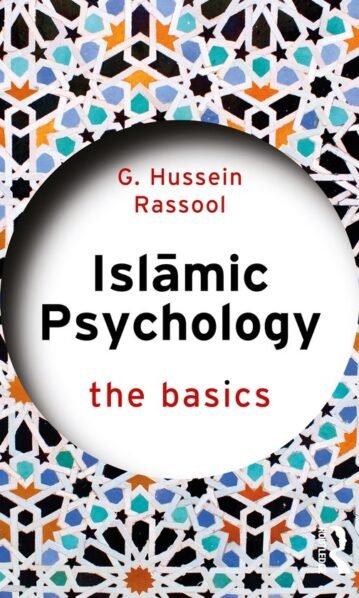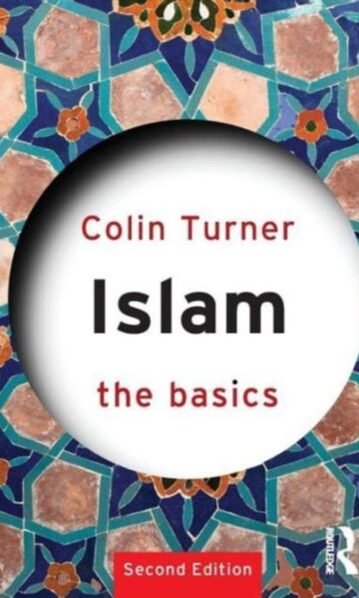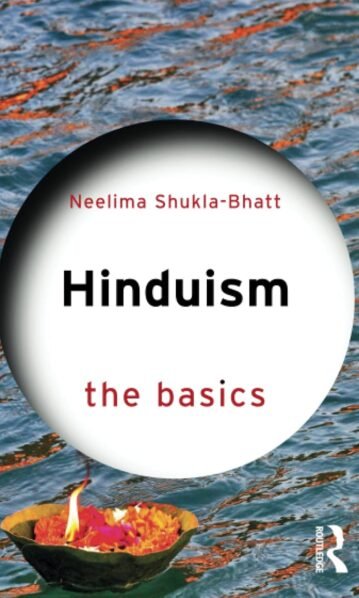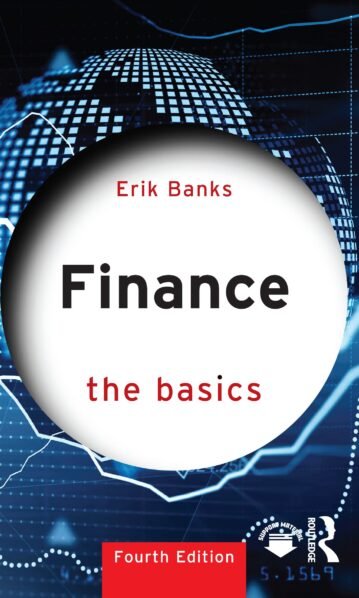Routledge
Stone Age Economics
65,00 ₾Since its first publication over forty years ago Marshall Sahlins’s Stone Age Economics has established itself as a classic of modern anthropology and arguably one of the founding works of anthropological economics. Ambitiously tackling the nature of economic life and how to study it comparatively, Sahlins radically revises traditional views of the hunter-gatherer and so-called primitive societies, revealing them to be the original “affluent society.”
Sahlins examines notions of production, distribution and exchange in early communities and examines the link between economics and cultural and social factors. A radical study of tribal economies, domestic production for livelihood, and of the submission of domestic production to the material and political demands of society at large, Stone Age Economics regards the economy as a category of culture rather than behaviour, in a class with politics and religion rather than rationality or prudence. Sahlins concludes, controversially, that the experiences of those living in subsistence economies may actually have been better, healthier and more fulfilled than the millions enjoying the affluence and luxury afforded by the economics of modern industrialisation and agriculture.
This Routledge Classics edition includes a new foreword by David Graeber, London School of Economics.
Lines
65,00 ₾What do walking, weaving, observing, storytelling, singing, drawing and writing have in common? The answer is that they all proceed along lines. In this extraordinary book Tim Ingold imagines a world in which everyone and everything consists of interwoven or interconnected lines and lays the foundations for a completely new discipline: the anthropological archaeology of the line.
Ingold’s argument leads us through the music of Ancient Greece and contemporary Japan, Siberian labyrinths and Roman roads, Chinese calligraphy and the printed alphabet, weaving a path between antiquity and the present. Drawing on a multitude of disciplines including archaeology, classical studies, art history, linguistics, psychology, musicology, philosophy and many others, and including more than seventy illustrations, this book takes us on an exhilarating intellectual journey that will change the way we look at the world and how we go about in it.
This Routledge Classics edition includes a new preface by the author.
World Prehistory: The Basics
69,00 ₾World Prehistory: The Basics tells the compelling story of human prehistory. from our African origins to the spectacular pre-industrial civilizations and cities of the more recent past.
Written in a non-technical style by two archaeologists and experienced writers about the past. the story begins with human origins in Africa some 6 million years ago and the spread of our remote ancestors across the Old World. Then we return to Africa and describe the emergence of Homo sapiens (modern humans) over 300.000 years ago. then. much later. their permanent settlement of Europe. Eurasia. Asia. and the Americas. From hunters and foragers. we turn to the origins of farming and animal domestication in different parts of the world after about 11.000 years ago and show how these new economies changed human existence dramatically. Five chapters tell the stories of the great pre-industrial civilizations that emerged after 5000 years before present in the Old World and the Americas. their strengths. volatility. and weaknesses. These chapters describe powerful rulers and their ideologies. also the lives of non-elites. The narratives chronicle the rise and fall of civilizations. and the devastating effects of long droughts on many of them. The closing chapter poses a question: Why is world prehistory important in the modern world? What does it tell us about ourselves?
Providing a simple. but entertaining and stimulating. account of the prehistoric past from human origins to today from a global perspective. World Prehistory: The Basics is the ideal guide to the story of our early human past and its relevance to the modern world.
Women’s Studies: The Basics
72,00 ₾Women’s Studies: The Basics is an accessible introduction to the pathbreaking and cross-disciplinary study of women―past and present. Tracing the history of the field from its origins. this revised and updated text sets out the main topics making up the discipline. exploring its global development and its relevance to our own times. A new chapter on militarization and violence provides fresh insight into trends in the contemporary world and adds to curricular significance. Reflecting the diversity of the field. core themes include:
The interdisciplinary nature of women’s studies
Core feminist theories and the feminist agenda
Issues of intersectionality: women. race. class. gender. ethnicity. and religion
Violence. militarization. security. and peace
Women. sexuality. and the body
Women’s Studies: The Basics provides an informed foundation for those new to the subject and is especially meant to guide undergraduates and postgraduates concentrating in women’s studies and gender studies. Those in related disciplines will find in it a valuable overview of and background to women-centered issues and concerns. including global ones. The work also provides an updated list of suggested reading to help in further study. classroom presentations. and written exercises.
Witchcraft: The Basics
72,00 ₾Witchcraft: The Basics is an accessible and engaging introduction to the scholarly study of witchcraft. exploring the phenomenon of witchcraft from its earliest definitions in the Middle Ages through to its resonances in the modern world. Through the use of two case studies. this book delves into the emergence of the witch as a harmful figure within western thought and traces the representation of witchcraft throughout history. analysing the roles of culture. religion. politics. gender and more in the evolution and enduring role of witchcraft.
Key topics discussed within the book include:
The role of language in creating and shaping the concept of witchcraft
The laws and treatises written against witchcraft
The representation of witchcraft in early modern literature
The representation of witchcraft in recent literature. TV and film
Scholarly approaches to witchcraft through time
The relationship between witchcraft and paganism
With an extensive further reading list. summaries and questions to consider at the end of each chapter. Witchcraft: The Basics is an ideal introduction for anyone wishing to learn more about this controversial issue in human culture. which is still very much alive today.
Translation: The Basics
68,00 ₾Translation: The Basics is an accessible and comprehensive introduction to the study of translation. This revised edition includes two new chapters on culturally embedded concepts and translation in global business. All references have been updated with additional references and new quotes added.
Combining traditional text-based views with the context of translation in its widest sense. it presents an integrated approach to methodology in order to critically address influences such as power and gender. as well as cultural. ethical. political and ideological issues. This book answers such questions as:
How can translations be approached?
Do social issues and culture play a part in translations?
How does a translation relate to the original work?
What effect has globalization had on translation?
What are the core concerns of professional translators?
Key theoretical issues are explained with reference to a range of case studies. suggestions for further reading and a detailed glossary of terms. making this the essential guide for anyone studying translation and translation studies.
The Bible: The Basics
72,00 ₾The Bible: The Basics is an accessible and engaging introduction to the Bible as both a sacred text. central to the faith of millions. and a classic work of Western literature. containing a tapestry of genres. voices. perspectives. and images. This guide skilfully addresses both aspects of the Bible’s character by exploring:
the rich variety of literary forms. from poetry to prophecy and epistles to apocalypses;
the historical. geographic. and social context of the Bible;
contemporary attitudes to the Bible held by believers and non-believers;
the status of biblical interpretation today.
The second edition has been updated throughout and includes maps and detailed suggestions for further reading. This is an ideal starting point for people of any faith. or none. who are studying the Bible in any setting or who simply want to know more about the best-selling book of all time.
Terrorism: The Basics
72,00 ₾Terrorism: The Basics is an ideal starting point for anyone interested in one of the most discussed. written about and analysed aspects of modern life. Common misconceptions are dispelled as the authors provide clear and jargon-free answers to the big questions:
What does terrorism involve?
Who can be classified as a terrorist?
What are terrorists trying to achieve?
Who are the supporters of terrorism?
Can there ever be an end to terrorist activity?
These questions and more are answered with reference to contemporary groups and situations allowing readers to relate theory to what they have seen on the news. Written with clarity and insight. this book is the perfect first book on terrorism for students of all levels.
Subcultures: The Basics
62,00 ₾Subcultures: The Basics is an accessible and engaging introduction to subcultures in a global context. This fully revised new edition adds new case studies and an additional chapter on the digital lives of subculturists as well as reflections on the relationships between subcultures and globalisation and the resurgence of the far-right. Blending theory and practice. this text examines a varied range of subcultures including hip hop. graffiti writing. heavy metal. punk. gamers. burlesque. parkour. riot grrrl. straight edge. roller derby. steampunk. b-boying/b-girling. body modification. and skateboarding. Subcultures: The Basics answers the key questions posed by those new to the subject. including:
What is a subculture? What are the significant theories of subculture?
How do subcultures emerge. who participates and why?
How do subcultural identities interact with other aspects of self. such as social class. race. gender. and sexual identity?
What is the relationship between deviance. resistance and the ‘mainstream’?
How have both progressive and reactionary subculturists contributed to social change?
How does society react to different subcultures?
How have subcultures spread around the world?
In what ways do digital technologies and social media influence subcultures?
What happens when subculturists age?
Tracing the history and development of subcultural theory to the present day. this text is essential reading for all those studying subcultures in the contexts of sociology. cultural studies. history. media studies. anthropology. musicology. and criminology. It pushes the field forward with cutting-edge theories of resistance and social change. place and space. critical race and queer studies. virtual participation. and ageing and participation across the life course. Key terms and concepts are highlighted throughout the text whilst each chapter includes boxed case studies and signposts students to further reading and resources.
Sociology
72,00 ₾A lively. accessible and comprehensive introduction to the diverse ways of thinking about social life. Sociology: The Basics has been translated into six languages. The volume is packed with thought-provoking summaries. questions. quotations and activities. It offers an absorbing narrative about what we mean by the social. and how we can think about it. weaving in discussions of the personal. the political and social change. along with concepts and vivid contemporary examples. and answering questions such as:
What is the scope. history and purpose of sociology?
How do we cultivate ways of understanding society and ‘the social’?
What is the state of the world we live in today?
How do we analyse suffering and inequalities?
What are key methods and tools for researching and thinking about society?
How has digitalism reshaped sociology and its method?
How might sociology help us understand the changes brought about by Covid-19?
Does sociology have values?
What is the role of sociology in making a better world?
In this thoroughly revised and updated Third edition the reader is encouraged to think critically about the structures. meanings. histories and cultures found in the rapidly changing world we live in. With tasks to stimulate the sociological mind and suggestions for further reading both within the text and on an accompanying website. this book is essential reading for all those studying sociology and those with an interest in how the modern world works.
Simone de Beauvoir: The Basics
68,00 ₾Simone de Beauvoir: The Basics provides an accessible introduction to the life. work and ground-breaking ideas of author. philosopher. and feminist Simone de Beauvoir.
The book offers readers “the basics” of Beauvoir. affording new and continuing readers a guide to her works and ideas. The book examines main developments in her life. the social and political events and efforts. as well as intellectual figures who influenced her thinking. Readers will be introduced to her existentialist ethics of freedom and her preoccupation with situations of oppression. covering her more widely read philosophical texts like The Second Sex and The Ethics of Ambiguity. as well as her lesser-known texts like A Very Easy Death and Les Belles Images.
Simone de Beauvoir: The Basics offers an energetic introduction to Beauvoir that encourages readers to study her further and that will inspire them to think with Beauvoir in their own lives. and is of value to those studying Beauvoir’s work for the first time and those looking for a supplement to their general knowledge of Beauvoir.
Sigmund Freud
69,00 ₾Sigmund Freud: The Basics is an easy-to-read introduction to the life and ideas of Sigmund Freud. the founder of psychoanalysis and a key figure in the history of psychology.
Janet Sayers provides an accessible overview of Freud’s early life and work. beginning with his childhood. Her book includes the stories of his most famous patients: Dora. Little Hans. the Rat Man. Judge Schreber. and the Wolf Man. It also discusses Freud’s key ideas such as psychosexual development. the Oedipus complex. and psychoanalytic treatment. Sayers then covers Freud’s later work. with a description of his observations about depression. trauma and the death instinct. as well as his 1923 theory of the id. ego. and superego. The book includes a glossary of key terms and concludes with examples of how psychoanalysis has been applied to the study of art. literature. film. anthropology. religion. sociology. gender politics. and racism.
Sigmund Freud: The Basics offers an essential introduction for students from all backgrounds seeking to understand Freud’s ideas and for general readers with an interest in psychology. For those already familiar with Freudian ideas. it offers a helpful guide to their interdisciplinary applications and context not least today.
Sexology
61,00 ₾Sexology: The Basics is the contemporary manual of human sexuality. eroticism. and intimate relationships. It takes you to every corner of the human erotic mind and physiological arousal response for a thorough understanding of all the functional parts of our sexualities. including how we bond. love and have sex from a broad perspective of diversities in sex. gender. and relationships. from monogamy to polyamory. Vanilla to Kink. This book bridges the gaps in our knowledge of sex education.
It is the ultimate guide to answering all the questions you never dared to ask. whether you are a student or a professional. or want to make sense of our often confusing erotic world.
Religion: The Basics
72,00 ₾From the local to the global level. religion is – more than ever – an important and hotly debated part of modern life in the twenty-first century.
From silver rings to ringtones and from clubs to headscarves. we often find the cultural role and discussion of religion in unexpected ways.
Now in its second edition. Religion: The Basics remains the best introduction to religion and contemporary culture available. The new edition has been fully revised and updated. and includes new discussions of:
the study of religion and culture in the twenty-first century
texts. films and rituals
cognitive approaches to religion
globalization and multiculturalism
spirituality in the West
popular religion.
With new case studies. linking cultural theory to real world religious experience and practice. and guides to further reading. Religion: The Basics is an essential buy for students wanting to get to grips with this hotly debated topic.
Religion and Science: The Basics
72,00 ₾Religion and science are arguably the two most powerful social forces in the world today. But where religion and science were once held to be compatible. many people now perceive them to be in conflict. This unique book provides the best available introduction to the burning debates in this controversial field. Examining the defining questions and controversies. renowned expert Philip Clayton presents the arguments from both sides. asking readers to decide for themselves where they stand:
• science or religion. or science and religion?
• history and philosophy of science
• the role of scientific and religious ethics – modifying genes. extending life. and experimenting with human subjects
• religion and the environmental crisis
• the future of science vs. the future of religion.
Thoroughly updated throughout. this second edition explores religious traditions from around the world and provides insights from across the sciences. making this book essential reading for all those wishing to come to their own understanding of some of the most important debates of our day.
Public Relations: The Basics
72,00 ₾Public Relations: The Basics is a highly readable introduction to one of the most exciting and fast-paced media industries. Both the practice and profession of public relations are explored and the focus is on those issues which will be most relevant to those new to the field:
The four key phases of public relations campaigns: research. strategy. tactics and evaluation.
History and evolution of public relations.
Basic concepts of the profession: ethics. professionalism and theoretical underpinnings.
Contemporary international case studies are woven throughout the text ensuring that the book is relevant to a global audience. It also features a glossary and an appendix on first steps towards a career in public relations making this the book the ideal starting point for anyone new to the study of public relations..
Public Administration
62,00 ₾Public administration is the set of instruments – the rules. incentives. organizations. information. systems and people – to implement public policy. Public Administration: The Basics is a reader-friendly and up-to-date synthesis of the subject. complete with relatable examples. analogies. and real-world illustrations.
The book offers practical insight without jargon and covers all major topics. The first three chapters describe the functions and organizational structure of government; the next three focus on the core issues of the management of public finances. government personnel. and public procurement; the final three chapters address government regulation. the provision of public services. and the interaction between government and the private sector. Public Administration: The Basics is an ideal first book for introductory public administration courses. as well as complementary reading for courses in political science. public economics. and international affairs. The book also serves as an accessible reference for busy policymakers. civil servants. and engaged citizens.
Psychology
69,00 ₾This compact introduction is the ideal primer for anyone looking for an accessible overview of the basic principles of psychology. the fascinating science of mind and behavior.
In everyday life we often ask why people act the way that they do. especially when we encounter or hear about puzzling behavior. Psychology: The Basics introduces everyday explanations of behavior. considering them through a psychological lens. Illustrating how behavior can be explained through fundamental psychological principles. the book covers the core areas of cognitive. developmental. and social psychology as well as behaviorism. the human brain. our emotions. personality and individual differences. and psychological disorders.
This book. which includes further reading in each chapter for those wishing to study more deeply. is the perfect easy-to-understand introductory text for students. teachers. health personnel. human resource managers. administrators. and anyone interested in the human mind and behavior.
Pragmatics: The Basics
72,00 ₾Pragmatics: The Basics is an accessible and engaging introduction to the study of verbal and nonverbal communication in context.
Including nine chapters on the history of pragmatics. current theories. the application of pragmatics. and possible future developments in the field. this book:
Offers a comprehensive overview of key ideas in contemporary pragmatics and how these have developed from and beyond the pioneering work of the philosopher Paul Grice;
Draws on real-world examples such as political campaign posters and song lyrics to demonstrate how we convey and understand direct and indirect meanings;
Explains the effects of verbal. nonverbal. and multimodal communication and how the same words or behaviour can mean different things in different contexts. including what makes utterances more or less polite;
Highlights key terms and concepts throughout and provides chapter-end study questions. further reading suggestions. and a glossary.
Written by an experienced researcher and teacher. this book will be an essential introduction to this topic for all beginning students of English Language and Linguistics.
Philosophy of Religion: The Basics
72,00 ₾This book introduces students and other interested readers to the philosophy of religion―a vibrant and growing field of academic philosophy. Readers will be guided through an exploration of classic and contemporary arguments for and against theism. In addition to this crucial. but standard fare. this book looks to probe deeper into the nature and value (or dis-value) of religion itself. Philosophy of religion is becoming more diverse. both in terms of the religious traditions it examines. and the issues that it addresses. This book reflects that fact. engaging with religious traditions from Quakerism to Jainism. Questions and topics covered include:
What is religion?
What philosophical problems arise for the practices of prayer. worship. and meditation?
How might multiple religions co-exist in peace?
If there’s a God. would it be the sort of thing that language could describe?
When and how might it be rational to wager that a particular religion is true?
With a glossary of key terms and suggestions for further reading. Philosophy of Religion: The Basics is an ideal starting point for anyone seeking a lively and accessible foray into the study of religion or philosophy.
Phenomenology: The Basics
72,00 ₾Phenomenology: The Basics is a concise and engaging introduction to one of the dominant philosophical movements of the 20th century. This lively and lucid book provides an introduction to the essential phenomenological concepts that are crucial for understanding great thinkers such as Husserl. Heidegger. and Merleau-Ponty. Written by a leading expert in the field. Dan Zahavi examines and explains key questions such as:
What is a phenomenological analysis?
What are the methodological foundations of phenomenology?
What does phenomenology have to say about embodiment and intersubjectivity?
How is phenomenology distinguished from. and related to. other fields in philosophy?
How do ideas from classic phenomenology relate to ongoing debates in psychology and qualitative research?
With a glossary of key terms and suggestions for further reading. the book considers key philosophical arguments around phenomenology. making this an ideal starting point for anyone seeking a concise and accessible introduction to the rich and complex study of phenomenology.
Personality Psychology
69,00 ₾Personality Psychology: The Basics provides a jargon-free and accessible overview of the discipline. focusing on why not all individuals think. feel. speak. or act the same way in the same situation.
The book offers a brief history of the area. covering a range of perspectives on personality including psychodynamic. behaviourist. humanistic. and cognitive approaches. Also featuring fascinating case studies to richly illustrate the theories discussed. the text looks at influential theories and related research within each of the major schools of thought in personality psychology. Rigorously examining the fundamental principles of personality psychology. the author concludes by outlining the future of the area in relation to cutting edge research and potential future trends.
Exploring the major personality theories that seek to explain why people behave as they do in eight reader-friendly chapters. and written in accordance with British Psychological Society (BPS) guidelines regarding content in Individual Differences. this is an essential introduction for students who are approaching personality psychology for the first time.
Media Studies: The Basics
72,00 ₾Fully updated and revised. the second edition of Media Studies: The Basics is the ideal guide to the changing landscape of media and Media Studies.
There have been seismic shifts in what constitutes (the) media in recent years with technological advances ushering in whole new categories of producers. consumers and modes of delivery. This has been reflected in the way media is studied with new theories. concepts and practices coming to the fore. This new edition addresses core questions including:
Who. or what. are the media?
What are the key terms and concepts used in analysing media?
Where have new media technologies had the biggest impact?
How. and by whom. is media made in the 21st century?
Featuring new case studies. an updated glossary and suggestions for further reading. this is the ideal introduction to Media Studies today for both A Level and undergraduate students.
Marketing: The Basics
72,00 ₾‘…a punchy. stripped-down version of what marketing is all about.’ – The Times Higher Education Supplement
If you have a product you’re looking to market. or you’re seeking to learn more about the potential of online marketing. Marketing: The Basics tells you everything you need to know about the techniques marketers use to push their product to the ‘tipping point’. The essentials of e-commerce are explored and explained. along side more traditional marketing approaches in this revised and updated new edition. This book:
Explains the fundamentals of marketing and useful concepts such as the Long Tail
Includes an international range of topical case studies. such as Obama’s presidential campaign. Facebook. and Google
Also includes a glossary of terms. guides to further reading and critical questions to assist further thinking and study
This lively and user-friendly introduction is perfect for professionals seeking to learn more about subject. and recommended for sixth-form. first-year undergraduate and MBA students.
Magic: The Basics
72,00 ₾Magic: The Basics is a concise and engaging introduction to magic in world history and contemporary societies. Presenting magic as a global phenomenon which has manifested in all human cultures. this book takes a thematic approach which explores the historical. social. and cultural aspects of magic.
Key features include:
attempts to define magic either in universal or more particular terms. and to contrast it with other broad and potentially fluid categories such as religion and science;
an examination of different forms of magical practice and the purposes for which magic has been used;
debates about magic’s effectiveness. its reality. and its morality;
an exploration of magic’s association with certain social factors. such as gender. ethnicity and education. among others.
Offering a global perspective of magic from antiquity through to the modern era and including a glossary of key terms. suggestions for further reading and case studies throughout. Magic: The Basics is essential reading for anyone seeking to learn more about the academic study of magic.
Logic: The Basics
72,00 ₾Logic: The Basics is an accessible introduction to several core areas of logic. The first part of the book features a self-contained introduction to the standard topics in classical logic. such as:
· mathematical preliminaries
· propositional logic
· quantified logic (first monadic. then polyadic)
· English and standard ‘symbolic translations’
· tableau procedures.
Alongside comprehensive coverage of the standard topics. this thoroughly revised second edition also introduces several philosophically important nonclassical logics. free logics. and modal logics. and gives the reader an idea of how they can take their knowledge further. With its wealth of exercises (solutions available in the encyclopedic online supplement). Logic: The Basics is a useful textbook for courses ranging from the introductory level to the early graduate level. and also as a reference for students and researchers in philosophical logic.
Literary Theory: The Basics
72,00 ₾This third edition of Hans Bertens’ bestselling book is an essential guide to the often confusing and complicated world of literary theory. Exploring a broad range of topics from Marxist and feminist criticism to postmodernism and new historicism Literary Theory: The Basics covers contemporary topics including:
reception theory and reader response theory
the new criticism of postmodernism
the ‘after theory’ debate
post-humanism. biopolitics and animal studies
aesthetics
Literary Theory: The Basics helps readers to approach the many theories and debates in this field with confidence. Now with updated case studies and further reading this is an essential purchase for anyone who strives to understand literary theory today..
Judaism: The Basics
69,00 ₾The oldest of the world’s major faiths. Judaism as practiced today represents a tradition that goes back nearly 6.000 years. Accessible and wide-ranging. Judaism: The Basics is a must-have resource covering the stories. beliefs and expressions of that tradition.
Key topics covered include:
the Torah
Israel – the state and its people
Passover
Reform Judaism. Orthodox Judaism and Zionism
the impact of the Holocaust.
With a glossary of terms and extensive suggestions for further reading. Judaism: The Basics is an essential guide through the rich intricacies of the Jewish faith and people.
Islamic Psychology
62,00 ₾Islamic Psychology: The Basics is a jargon-free and accessible introduction that explores psychology from an Islāmic perspective. and provides a foundation level overview of the fundamental principles and practices of Islāmic psychology. The book introduces concepts. models. approaches. themes. and theories you need to know to study the mind. soul. and behaviour based on Islāmic scripture.
Offering an overview of Islāmic psychology and what Islāmic psychologists do. chapters address key topics including the history of the evolution of the science of the soul. and the psychology of human behaviour and experiences. Rassool examines the concepts of the Fitrah. the Nafs (Self). the Aql (Intellect). the Rūḥ (Soul) the Qalb (Heart). and the concept of Islāmic healing and spiritual interventions. Other themes include the Qur’an and psychology. models and approaches in Islāmic psychology. interpreting Islāmic psychology for modern times. and the contemporary scope of the practice of Islāmic psychology.
Outlining the challenges and solutions of the development of Islāmic psychology and potential future trends. and including features to aid learning. this is the ideal introductory book for students in Psychology. Islāmic Psychology. and Islāmic Studies. as well as professionals including counsellors and therapists. and anyone interested in psychology from an Islāmic perspective.
Islam: The Basics
72,00 ₾Now in its second edition. Islam: The Basics provides an introduction to the Islamic faith. examining the doctrines of the religion. the practises of Muslims and the history and significance of Islam in modern contexts. Key topics covered include:
the Qur’an and its teachings
the life of the Prophet Muhammad
gender. women and Islam
Sufism and Shi’ism
Islam and the western world
non-Muslim approaches to Islam.
With updated further reading. illustrative maps and an expanded chronology of turning points in the Islamic world. this book is essential reading for students of religious studies and all those new to the subject of Islam.
Hinduism: The Basics
55,00 ₾Hinduism: The Basics introduces readers to the third largest. and arguably the oldest. living religious tradition. It opens a vista into the rich and dynamic ethos of the Hindu religious tradition in India and other parts of the world. The book explores the variety of philosophical schools. priestly rituals. and popular practices common in the Hindu faith. presenting the layered diversity of its traditions and how they function in everyday life.
Chapters unpack key concepts from the tradition and discussions about its various aspects. including:
The historical development of Hinduism
Religious practices such as pilgrimage. meditation. and life cycle rituals
The organisation of Hindu society into castes and related social justice issues
The spread of Hinduism around the world. the rise of Hindu nationalism. and other challenges of modernity
The continuum between sacred texts in both elite Sanskrit and in South Asian vernacular languages
Hindu worldviews including karma. reincarnation. and ethics
The vitality of indigenous cultures in every form of Hinduism
Featuring glossaries. timelines. suggestions for further reading. and a list of key deities as well as practices. this is an ideal introduction to Hindu beliefs and traditions for undergraduates and others new to the study of Hinduism.
Gerontology: The Basics
72,00 ₾Human aging is a complex. multi-faceted experience that unfolds over an entire lifetime. While human aging is universal. it is also wildly variable. shaped by individual. social. cultural. political. geographic and historical contexts. Gerontology: The basics explores the field of research. education and practice which takes on the complex and multi-faceted questions. issues and problems of adult aging and old age.
Intended for anyone interested in understanding the origins of gerontology and its unique purview. we invite the reader to join us in a critical examination of what we think we know about becoming and being old and. perhaps. be inspired to engage more deeply in their own travels through the life-course.
Gender: The Basics
72,00 ₾Gender: The Basics is an engaging introduction to the influence of cultural. historical. biological. psychological. and economic forces on ways in which we have come to define and experience femininity and masculinity. and on the impact and importance of gender categories. Highlighting that there is far more to gender than biological sex. it examines theories and research about how and why gender categories and identities are developed and about how interpersonal and societal power relationships are gendered. It takes a global and intersectional perspective to examine the interaction between gender and a wide range of topics including:
Relationships. intimacy. and concepts of sexuality across the lifespan
The workplace and labour markets
Gender related violence and war
Public health. poverty. and development
Gender and public leadership
This new edition includes increased coverage of trans visibility and activism. LGBTQ studies and critical masculinity studies. global developments in women’s political leadership. links between gender and economic wellbeing. and cyberbullying.
Supporting theory with examples and case studies from a variety of contexts. suggestions for further reading. and a detailed glossary. this text is an essential read for anyone approaching the study of gender for the first time.
Forensic Psychology: The Basics
72,00 ₾This edition of Forensic Psychology: The Basics continues to provide an essential and accessible overview of a dynamic and fascinating discipline. Providing an engaging introduction to the core topics within Forensic Psychology. the text combines a discussion of theory with information about the role of a professional forensic psychologist.
This edition has been fully updated throughout to include additional coverage of:
Offender profiling and rehabilitation
The role of psychology in crime prevention
Psychological factors relating to terrorism
Established topics including police psychology. the psychology of crime and delinquency. victimology and victim services. and correctional psychology are also considered in this invaluable guide. It will be essential reading for students across a range of disciplines. from psychology to criminology to law. or general readers seeking a concise and jargon-free introduction.
Finance
69,00 ₾Now in its fourth edition. Finance: The Basics is a clear and practical introduction to the world of finance. It thoroughly explains essential financial statements. tools. and concepts; fundamental financial instruments and transactions; and global financial participants. markets. and systems.
This fully revised edition captures the most important aspects of a changing financial landscape. including:
A new chapter dedicated to the emerging world of digital currencies. with a review of digital finance and a detailed discussion of regulated and unregulated digital currencies (including cryptocurrencies)
New sections dealing with a range of social issues that directly impact on finance. including sustainability; environmental. social. and governance (ESG) and socially responsible investing (SRI) imperatives; microfinance; and impact investing
Twelve updated real-world case studies (‘Finance in Action’ studies) and nine new case studies focused on annuities. sustainability. green financings. microfinance. digital currencies. financial technology/decentralised finance. ESG and SRI investing. quantitative easing and tightening. and the financial emergence of China
A concise and comprehensive glossary containing key terms discussed in the book
Supplemental digital resources. including PowerPoints for instructors and a test bank of questions for students
Each chapter is accompanied by an overview and summary. illustrations and tables. real-life case studies. and recommended readings. Finance: The Basics is essential reading for anyone interested in the fascinating world of finance.




